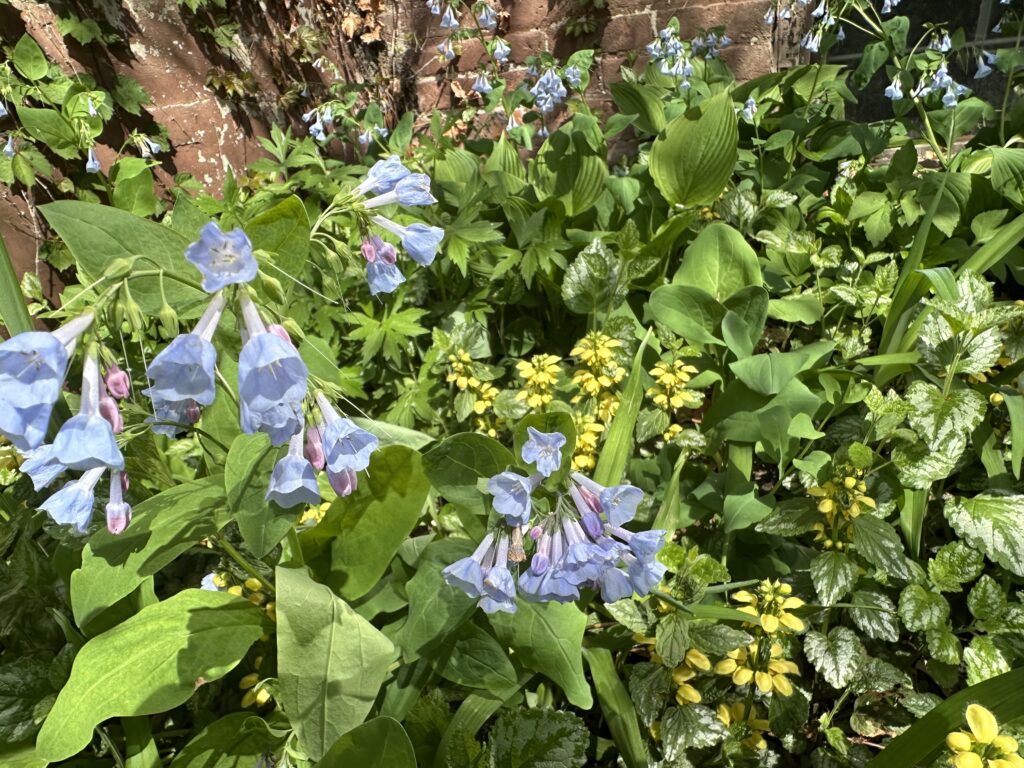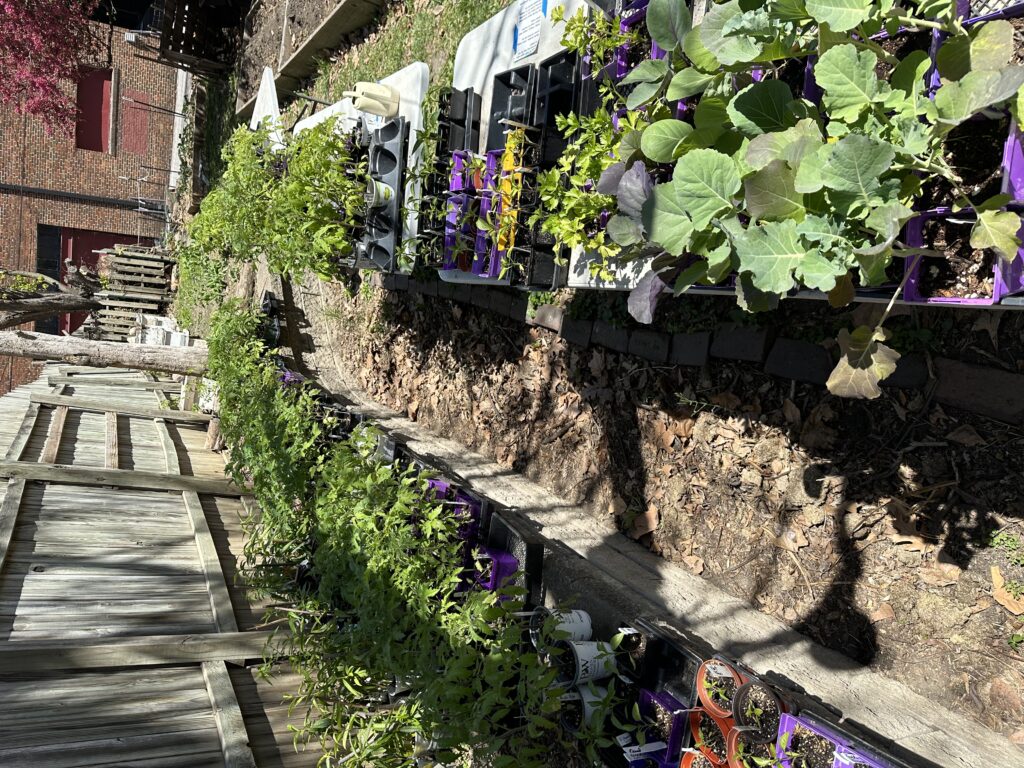Dear Friends,
(01:40) WarGames viewing opportunity in Iowa City on Earth Day;
(02:50) Caitlin Clark shows her sense of humor and support for women’s sports;
(03:55) A candid look at third-party politics, with Pat LaMarche;
(21:45) The troubling rise in incest;
(38:27) Biblical literalism: Which animals made it onto the ark?;
(53:43) Flawed study claims urban ag bad for planet, with Kathy Byrnes Fallon.
Did you know that growing food in cities is more damaging to the climate than industrial farming? Six times worse, in fact!
That’s the absurd conclusion advanced in a recent study — and promoted by the mainstream media. So, city folk, quit trying to feed yourselves. You’re destroying the planet. If you gave an actual dang, you’d drive to Walmart for your trucked-in fruits, veggies, eggs, and meat.
THE STUDY. “Comparing the carbon footprints of urban and conventional agriculture” was funded by Springer Nature (more on them in a bit). It purports to compare the carbon footprints of urban agriculture and conventional agriculture.
WHAT’S “URBAN AGRICULTURE?” The study defines three types of urban agriculture: “urban farms (professionally managed, focused on food production), individual gardens (small plots managed by single gardeners) and collective gardens (communal spaces managed by groups of gardeners).”
The study examined 73 operations in the US and Europe. Apparently, only the first type is considered food production. I guess we home gardeners are just in it for entertainment.
WHAT’S A “CONVENTIONAL FARM?” Who knows! Incredibly, the authors never provide a definition. If by “conventional” they mean big and industrial, then we’re talking about all kinds of heavy machinery, tiling, confinement buildings, lots of energy to heat and cool buildings, massive lagoons for manure storage, society’s cost to clean up any messes, etc. No carbon footprint there, folks.
WHO IS SPRINGER NATURE? It’s a German-British company whose main shareholders are Holtzbrinck Publishing Group and BC Partners. Holtzbrinck was founded by Georg von Holtzbrinck, a former member of the Nazi Party. Ouch. Let’s move on.
WHO IS BC PARTNERS? They’re a British investment firm with over $40 billion in global assets. One of those assets is Dümmen Orange, a floral company based in the Netherlands with farms in Central America and East Africa. Dümmen is, in its own words, “a leading global breeder and propagator of ornamental flowers and plants.“
In other words, they’re the Big Flower wing of Big Ag.
DOES ED HATE FLOWERS? No, I love flowers. Some of my favorites are potato, squash, artichoke, and eggplant. Kathy and I also have a patch of Bluebells and Yellow Archangels currently providing an early nectar boost for our bees (see photo).
Wildflowers are the bomb. I also appreciate farms that grow more celebratory flowers like tulips, carnations, roses, that sort of thing. My problem is size. It does matter. Big is generally bad, and local is almost always better than imported.
FOOD VS. FOOFOO CROPS. Like many big corporations, Springer Nature and its shareholders pay lip service to the climate crisis. Part of the problem with Dümmen’s presence in East Africa is water that should be used to irrigate food crops is instead irrigating flowers for export.
This is especially important given that, as of last month, “[m]illions in the greater Horn of Africa are facing acute hunger as the region faces one of the worst droughts in recent decades [from the World Health Organization].”
And in a statement released by the Food Security and Nutrition Working Group in August, 2022, about conditions in East Africa, “more than 560,000 children were treated for severe malnutrition between January and June, 2022.”
To paraphrase a notable 19th-century French imperialist, “Let them eat flowers.”
RABBIT HOLES. Yes, I just took you down one. Sorry. It’s deep, and we haven’t even run into a hookah-smoking caterpillar yet.
But you see where I’m going. Big corporations produce studies that justify their bigness. That usually happens when they feel threatened. In other words, whether you’re growing food in the city or the country, our efforts to reclaim food independence are having an impact.
IS THERE ANYTHING ED ACTUALLY LIKED ABOUT THE STUDY? Yes. The study observes that “gardens and farms are precarious, especially in cities with development pressure. To avoid displacing farms and the associated demolition of infrastructure, policies are needed that promote stable land tenure.”
That’s a solid message, and one I want every county and city elected official across the country to hear. Which brings me to:
TAKE ACTION! Share the importance of permanently dedicating land to food production with your city council members and county supervisors. Let me know what kinds of responses you get.
Thanks for reading, listening, and doing your part for a better world.
Ed Fallon
*******
In addition to our PODCAST, listen to the Fallon Forum on these affiliates:
– KHOI 89.1 FM (Ames, Iowa)
– KICI.LP 105.3 FM (Iowa City, Iowa)
– WHIV 102.3 FM (New Orleans, Louisiana)
– KPIP-LP, 94.7 FM (Fayette, Missouri)
– KCEI 90.1 FM (Taos, New Mexico)
– KRFP 90.3 FM (Moscow, Idaho)
– WGRN 94.1 FM (Columbus, Ohio)
– KKFI 90.1 FM (Kansas City, Missouri)
Please support the local businesses and non-profits who make this program possible. Click on their logos on the Fallon Forum website and in our weekly email, and visit Bold Iowa, and Birds & Bees Urban Farm. Thanks to Des Moines Irish Session for providing our bumper music, and thank you for supporting a civil alternative to the shock jocks!

Ed Fallon

